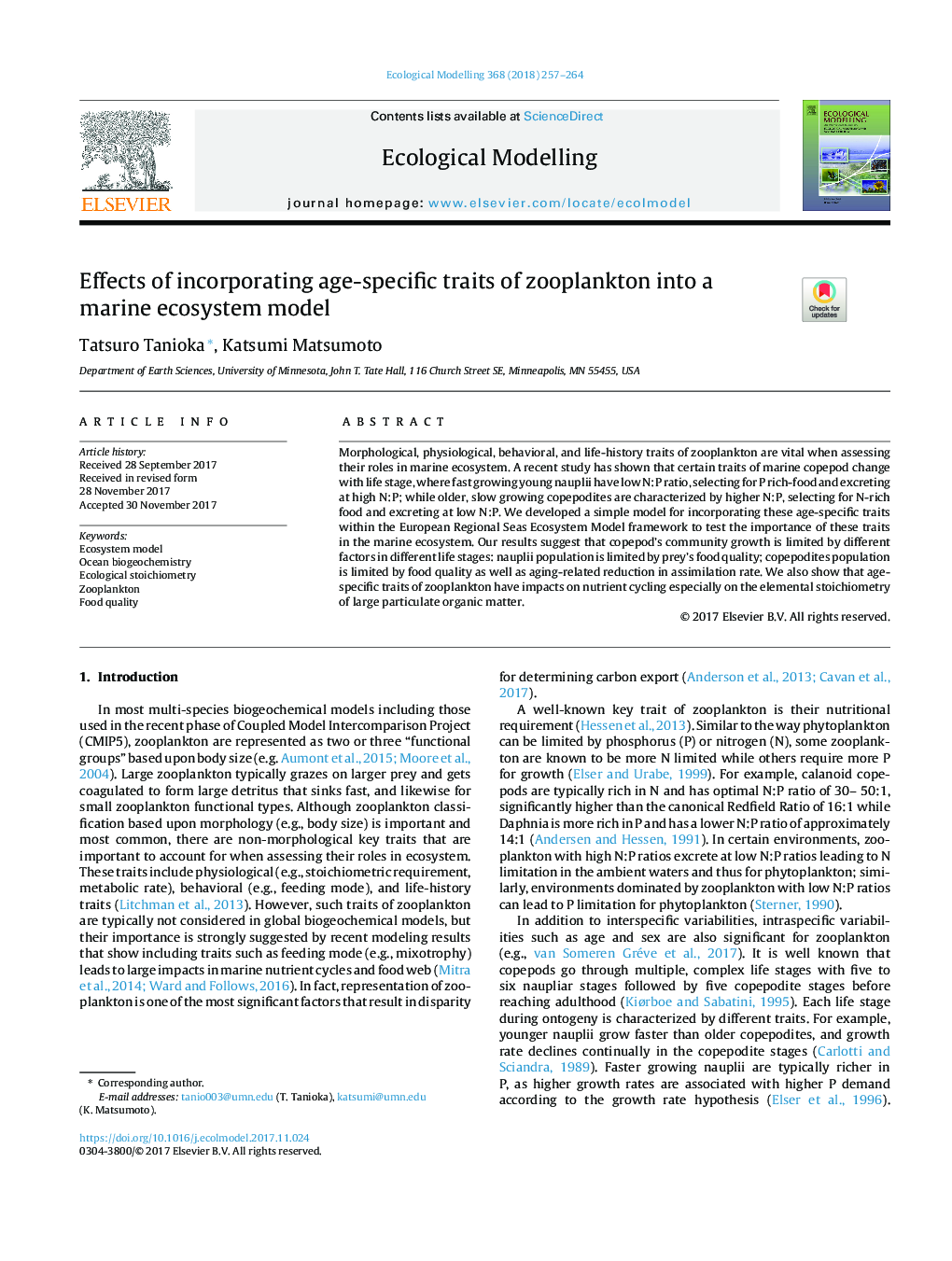| Article ID | Journal | Published Year | Pages | File Type |
|---|---|---|---|---|
| 8846147 | Ecological Modelling | 2018 | 8 Pages |
Abstract
Morphological, physiological, behavioral, and life-history traits of zooplankton are vital when assessing their roles in marine ecosystem. A recent study has shown that certain traits of marine copepod change with life stage, where fast growing young nauplii have low N:P ratio, selecting for P rich-food and excreting at high N:P; while older, slow growing copepodites are characterized by higher N:P, selecting for N-rich food and excreting at low N:P. We developed a simple model for incorporating these age-specific traits within the European Regional Seas Ecosystem Model framework to test the importance of these traits in the marine ecosystem. Our results suggest that copepod's community growth is limited by different factors in different life stages: nauplii population is limited by prey's food quality; copepodites population is limited by food quality as well as aging-related reduction in assimilation rate. We also show that age-specific traits of zooplankton have impacts on nutrient cycling especially on the elemental stoichiometry of large particulate organic matter.
Related Topics
Life Sciences
Agricultural and Biological Sciences
Ecology, Evolution, Behavior and Systematics
Authors
Tatsuro Tanioka, Katsumi Matsumoto,
